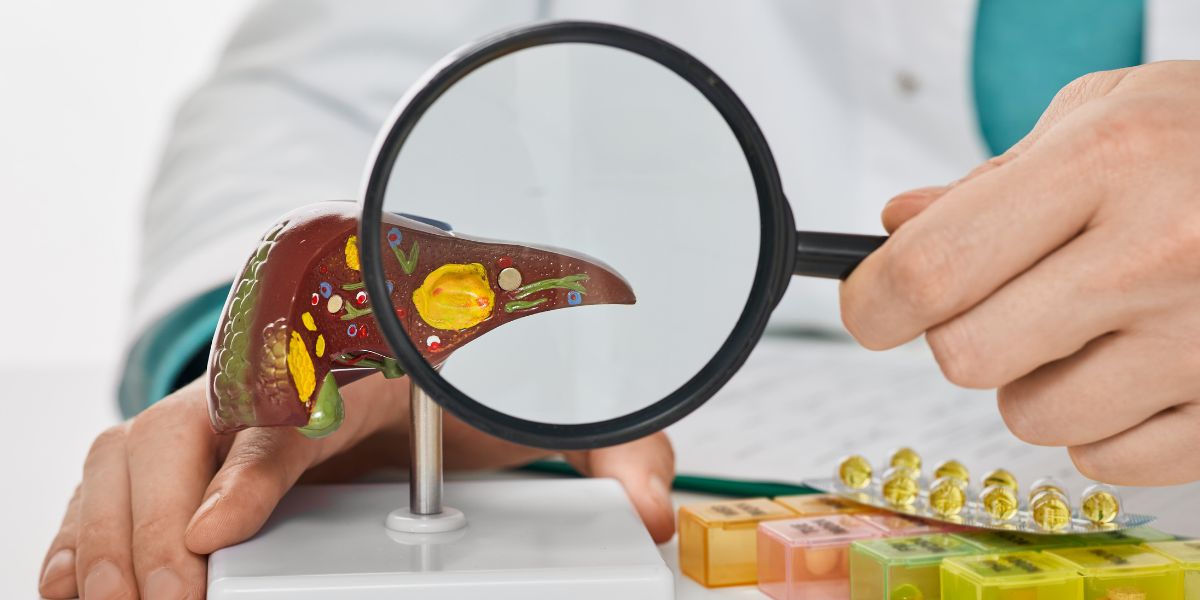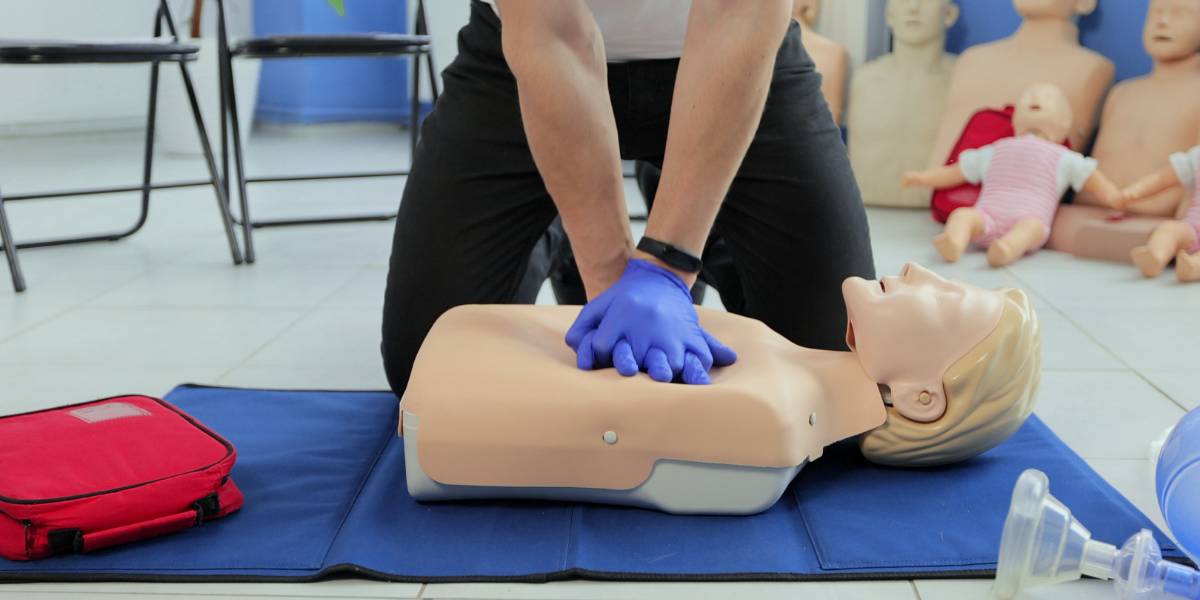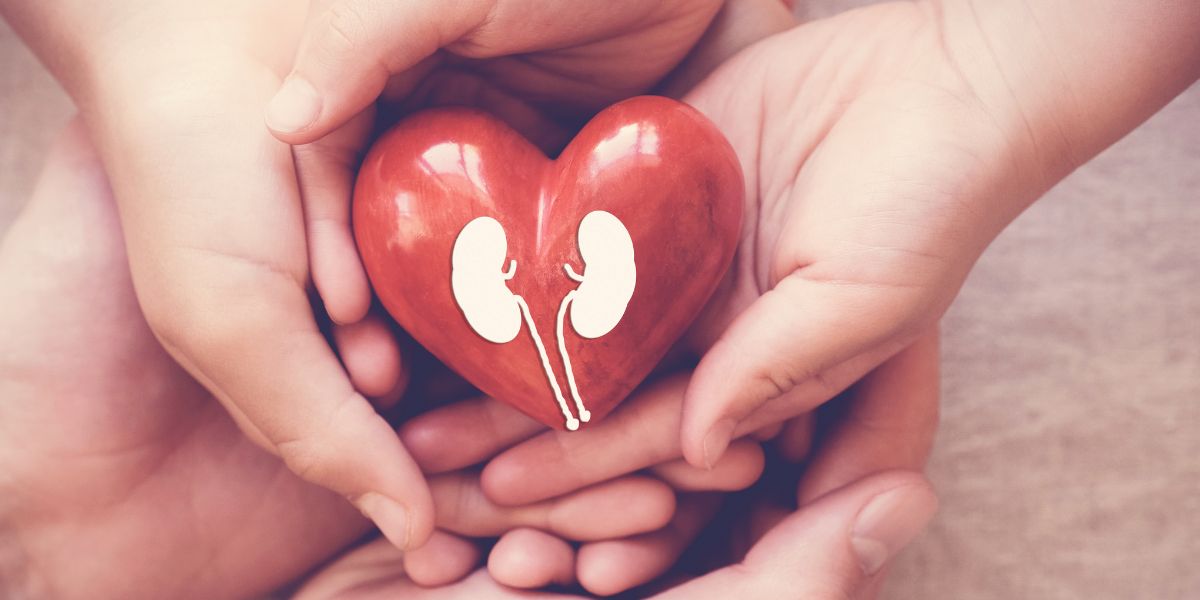Liver cancer is a rare type of cancer that affects one of the most complex organs in the human body.
Cases of liver cancer in the UK are far and few between but certain people, including those diagnosed with diabetes, face a higher risk of developing the cancer than the general population.
As with other forms of cancer, however, many cases of liver cancer can be prevented by keeping healthy lifestyle habits such as eating healthily, keeping fit and quitting or avoiding smoking.
What is liver cancer?
Liver cancer is a general term that refers to either:
- Primary liver cancer – cancer that originates in the liver
- Secondary liver cancer – cancer that spreads to the liver from another part of the body, such as the bowel
Located below the right lung, your liver is the largest internal organ of the human body and one that performs hundreds of important functions, including producing and releasing glucose when the body the needs it, converting fats to energy when needed and removing toxins from the body.
Damage to the liver , which is a common problem for people with diabetes, can disrupt these functions and cause them to fail altogether (liver failure) if left untreated.
How common is liver cancer?
In the UK, nearly 4,000 people are diagnosed with a form of liver cancer each year. The majority of these are secondary liver cancer – primary liver cancer is rare in the UK, but a common problem in other parts of the world.
More men are affected than women (60% versus 40%) and cases tend to develop in older adults over the age of 65.
What causes liver cancer?
The exact cause of liver cancer is unclear, but the disease is strongly linked to damage, inflammation and scarring of the liver, a condition known as cirrhosis.
Common causes of cirrhosis include alcohol misuse, viral infections such as hepatitis B or hepatitis C, and non-fatty alcoholic liver disease (NAFLD).
Can diabetes increase my risk?
Type 2 diabetes , the most common form of diabetes mellitus, is considered a risk factor for liver cancer due to its strong association with obesity
Obesity can lead to the build-up of excess fat inside the tissue of your liver (NAFLD), which not only raises the risk of cirrhosis but also heart disease and type 2 diabetes.
But as well as being a type 2 diabetes risk factor, non-alcoholic fatty liver disease is also one of the many health conditions (or complications) that can develop as a result of long-term type 2 diabetes , due largely to the fact that type 2 diabetes tends to develop in people who are overweight or obese.
Latest research
In December 2013, scientists from the University of Southern California found an association between type 2 diabetes and increased risk of hepatocelluar carcinoma or HCC – a rare form of liver cancer linked with having fatty liver disease.
Analysis of more than 150,000 medical records revealed that the liklihood of developing HCC was 2 to 3 times higher in patients diagnosed with type 2 diabetes compared to patients without diabetes.
Screening and diagnosis
For people deemed to be at high risk for developing liver cancer, such as those who have had cirrhosis, regular check-ups are important for identifying any early signs of cancer. Screening tests are usually carried out every six months and involve a blood test followed by an ultrasound examination.
If you show any of the signs of liver cancer, your GP may use one of the following tests to confirm a diagnosis of liver cancer:
- CT (computerised tomography) scan
- MRI (magnetic resonance imaging) scan
- Bopsy – a small sample of liver tissue is removed and tested for cancerous cells
- Laparoscopy – a small, flexible camera is slipped into your abdomen and used to examine your liver
The earlier liver cancer is diagnosed, the higher the chances of it being successfully treated and cured.
Treatment
If diagnosed early, there are a number of ways in which liver cancer can be treated, including:
- Resection – surgery to remove a section of liver where the cancer is contained
- Liver transplant – replacing the liver with a healthy, donor liver
- Radiofrequency ablation – using heat in the form of an electric charge to destroy the cancerous cells or tumour
Chemotherapy is also an option for treating late stages of liver cancer where a cure is not usually possible. A combination of powerful cancer-killing medicines are used to delay the progression of the cancer and prolong the patient’s life.
However, in most cases the cancer has advanced too far to be controlled or cured by the time a diagnosis is made. At this stage, the only option doctors have is to relieve pain and any other symptoms of liver cancer the patient may be experiencing.
Will my diabetes affect my treatment?
If you have diabetes, your multidisciplinary team (MDT) of cancer specialists will consult with your diabetes care team to determine the most suitable course of treatment.
They will take into account how well controlled your diabetes is and the stage your liver cancer is at.
Treating diabetes in a patients who also have cancer is often complicated by the cancer, cancer therapies such as chemotherapy, and the adverse effects of these treatments.
Chemotherapy, for example, can destabilise blood glucose control which will need to be closely monitored by your diabetes care team
In addition, cancer treatment can be delayed by the development of any short-term diabetes complications, such as severe hypoglycemia







